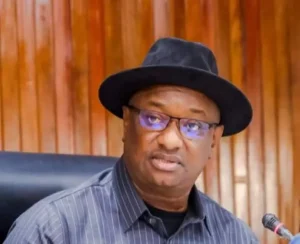A lecturer in the Department of Microbiology, Faculty of Life Sciences, University of Ilorin, Dr. David Adetitun, has invented a device that could be useful in oil spill mop-up operation.
The feat, a follow-up to an earlier breakthrough recorded by the Institute of Molecular Science and Biotechnology, University of Ilorin (IMSB), has been hailed by the National Centre for Biotechnology Information (NCBI) database (World Genomic Bank-GenBank) in the USA, where its DNA sequences have already been deposited.
It has also been made available to ENA in Europe and the DNA Data Bank of Japan.
The scientific breakthrough whch was recorded with the isolation of two novel biodegrading and bioremediating bacteria that could be useful in oil spill mop-up operation, was the outcome of the PhD research work undertaken by Dr. Adetitun.
The development has led to the issuance of the NCBI’s unique accession numbers, which gives the scientific community a unique label with which they may retrieve data from online servers showing it was reported for the first time across the globe.
According to Dr. Adetitun, “the two autochthonous bacteria were isolated in June, 2012 from kerosene experimentally-contaminated soil on the campus of the University of Ilorin. They were identified using molecular tools at the Department of Microbiology and the Department of Molecular Genetics, Oklahoma State University, USA in 2016. The bacterial isolates, which were cultured as part of the doctoral experiments, were found to have the capability to degrade kerosene, gasoline, jet fuel, hexadecane, hexane, cyclohexane, benzoate, phenol and other hydrocarbons”.
The doctoral thesis was supervised by Prof. A. B. Olayemi, a former Deputy Vice-Chancellor (Management Services) of the University of Ilorin and co-supervised by Prof. O. M. Kolawole, the Director, IMSB, University of Ilorin, with Dr. Babu Fathepure as advisor at Oklahoma State University, USA.
The super bugs, whose sequences were deposited, were found to be better eaters of hydrocarbons compared to other known organisms.
In a chat with Unilorin Bulletin, Dr. Adetitun said, “With the oil pollution problems in the Niger Delta region of Nigeria (which, the United Nations said, will take about 30 years to clean up, that is if the pollution stops now!) and elsewhere in the world, it is believed that these organisms will find practical use in biodegradation and bioremediation of petroleum compounds in Nigeria and globally”.



